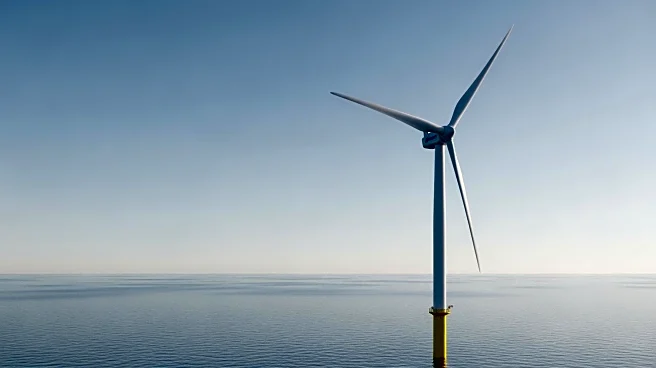What's Happening?
Njord Survey, a Swedish firm, has entered into a frame agreement with Energinet, Denmark's national transmission system operator, to provide site and route survey services for offshore wind and subsea
cable projects. This collaboration follows a similar agreement with German TSO 50Hertz earlier in October, aimed at supporting offshore wind developments in the Baltic Sea. Martin Wikmar, CEO of Njord Survey, emphasized the partnership's role in supporting the energy transition across Northern Europe by providing high-quality, carbon-neutral survey data essential for safe and efficient infrastructure development.
Why It's Important?
The partnership between Njord Survey and Energinet is significant as it reinforces Njord Survey's position in the offshore renewable sector, which is crucial for the energy transition in Northern Europe. By providing carbon-neutral survey data, the collaboration supports the development of safe and efficient infrastructure, which is vital for expanding renewable energy capabilities. This move is likely to benefit the renewable energy industry by enhancing the reliability and efficiency of offshore wind projects, potentially leading to increased investment and development in the sector.
What's Next?
The collaboration is expected to strengthen Njord Survey's role in the offshore renewable sector, potentially leading to more partnerships and projects in the future. As the demand for renewable energy grows, Njord Survey may expand its services to other regions, further supporting the global energy transition. Stakeholders, including political leaders and businesses, may react positively to this development, as it aligns with broader goals of reducing carbon emissions and increasing renewable energy production.
Beyond the Headlines
This partnership highlights the growing importance of collaboration in the renewable energy sector, as companies and governments work together to achieve sustainability goals. The focus on carbon-neutral survey data underscores the industry's commitment to environmental responsibility, which could influence other sectors to adopt similar practices. Additionally, the partnership may encourage further innovation in survey technologies, enhancing the efficiency and accuracy of data collection for renewable energy projects.









